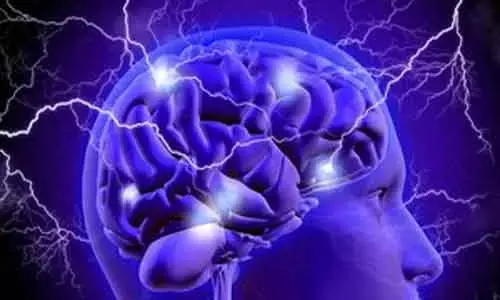- Home
- Medical news & Guidelines
- Anesthesiology
- Cardiology and CTVS
- Critical Care
- Dentistry
- Dermatology
- Diabetes and Endocrinology
- ENT
- Gastroenterology
- Medicine
- Nephrology
- Neurology
- Obstretics-Gynaecology
- Oncology
- Ophthalmology
- Orthopaedics
- Pediatrics-Neonatology
- Psychiatry
- Pulmonology
- Radiology
- Surgery
- Urology
- Laboratory Medicine
- Diet
- Nursing
- Paramedical
- Physiotherapy
- Health news
- Fact Check
- Bone Health Fact Check
- Brain Health Fact Check
- Cancer Related Fact Check
- Child Care Fact Check
- Dental and oral health fact check
- Diabetes and metabolic health fact check
- Diet and Nutrition Fact Check
- Eye and ENT Care Fact Check
- Fitness fact check
- Gut health fact check
- Heart health fact check
- Kidney health fact check
- Medical education fact check
- Men's health fact check
- Respiratory fact check
- Skin and hair care fact check
- Vaccine and Immunization fact check
- Women's health fact check
- AYUSH
- State News
- Andaman and Nicobar Islands
- Andhra Pradesh
- Arunachal Pradesh
- Assam
- Bihar
- Chandigarh
- Chattisgarh
- Dadra and Nagar Haveli
- Daman and Diu
- Delhi
- Goa
- Gujarat
- Haryana
- Himachal Pradesh
- Jammu & Kashmir
- Jharkhand
- Karnataka
- Kerala
- Ladakh
- Lakshadweep
- Madhya Pradesh
- Maharashtra
- Manipur
- Meghalaya
- Mizoram
- Nagaland
- Odisha
- Puducherry
- Punjab
- Rajasthan
- Sikkim
- Tamil Nadu
- Telangana
- Tripura
- Uttar Pradesh
- Uttrakhand
- West Bengal
- Medical Education
- Industry
Thrombolytic therapy safe for people with ischemic stroke even if they have unruptured aneurysms: AAN study

MINNEAPOLIS -A new study finds that Thrombolytic therapy may be safe for people with ischemic stroke even if they have unruptured aneurysms.The study is published in the October 6, 2021, online issue of Neurology®, the medical journal of the American Academy of Theology.
"These results are exciting because they may expand the population who can receive these thrombolytic therapies that can prevent death and disability for people with strokes," said study author Jyri Juhani Virta, MD, PhD, of the University of Helsinki in Finland.
Clot-busting drugs are the main treatment for stroke, but they have often not been recommended for people who have an aneurysm in their brains that has not ruptured. An aneurysm is a bulge in the wall of a blood vessel in the brain.
For the study, researchers looked at the records for all people with a stroke who were treated with clot-busting drugs at a stroke center in Finland over 15 years. After determining how many had unruptured aneurysms, they then looked to see how many people had a hemorrhagic stroke, or an intracranial hemorrhage, caused by the rupture of the aneurysm while they were in the hospital after the treatment.
Of the 3,953 people in the study, 132 people had one or more unruptured aneurysms. Of the 155 unruptured aneurysms, 141 were the type called saccular aneurysms and 14 were fusiform aneurysms.
The aneurysms ruptured after treatment causing a hemorrhagic stroke in only three people, or 2.3%. All three had large aneurysms called fusiform basilar artery aneurysms. All three were treated with blood thinners after their treatment. None of the saccular type of aneurysms ruptured.
"Fortunately, today blood thinners are not commonly used early after ischemic stroke, so that may help to reduce this risk even further," Virta said. "Our results suggest that thrombolytic therapy may be relatively safe for people with ischemic stroke even if they have larger saccular aneurysms that have not ruptured. For people with large fusiform aneurysms, additional consideration should be taken regarding treatment as blood thinners may increase the risk of aneurysm rupture."
https://n.neurology.org/content/early/2021/10/06/WNL.0000000000012771
Hina Zahid Joined Medical Dialogue in 2017 with a passion to work as a Reporter. She coordinates with various national and international journals and association and covers all the stories related to Medical guidelines, Medical Journals, rare medical surgeries as well as all the updates in the medical field. Email: editorial@medicaldialogues.in. Contact no. 011-43720751
Dr Kamal Kant Kohli-MBBS, DTCD- a chest specialist with more than 30 years of practice and a flair for writing clinical articles, Dr Kamal Kant Kohli joined Medical Dialogues as a Chief Editor of Medical News. Besides writing articles, as an editor, he proofreads and verifies all the medical content published on Medical Dialogues including those coming from journals, studies,medical conferences,guidelines etc. Email: drkohli@medicaldialogues.in. Contact no. 011-43720751


